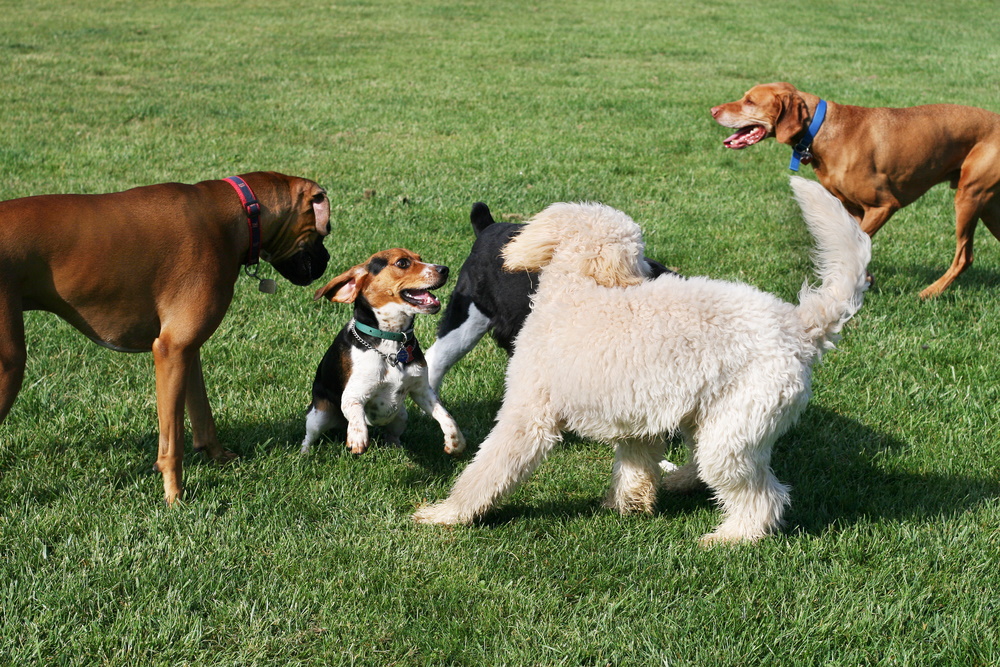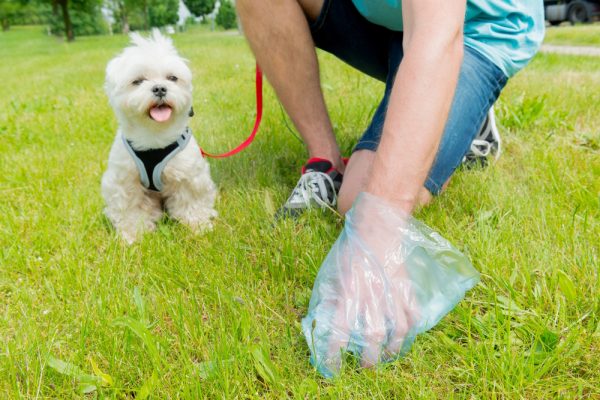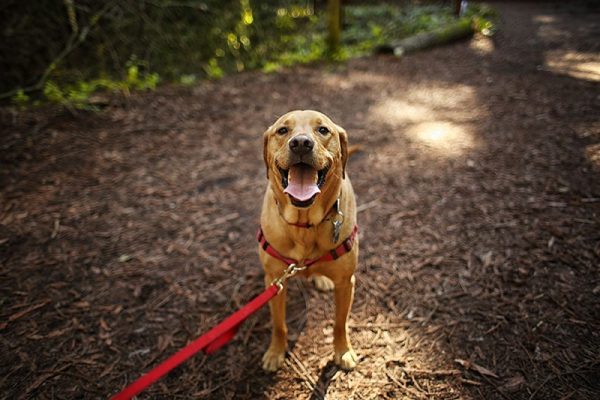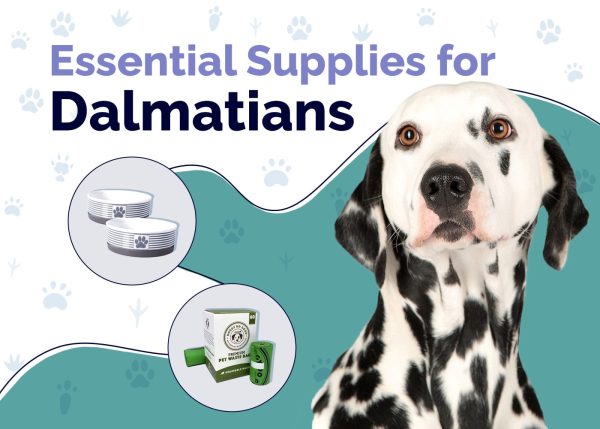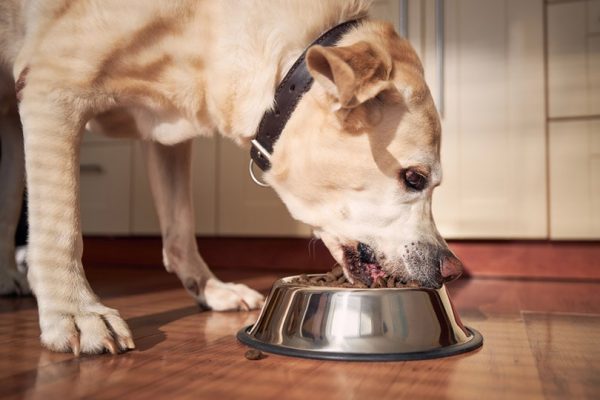Taking your dog to the dog park might seem like a quintessential experience for every dog owner, but is it? The truth is that not every pup enjoys going to the park, nor is it necessarily the healthiest or safest place for them. As with all things, the dog park has its pros and cons. Read on to learn more about the benefits and risks of taking your pet to the dog park to decide if it’s right for your dog, their personality, and your lifestyle.

The 5 Pros of Taking Your Dog to the Dog Park
1. Provides Dog-to-Dog Socialization
Taking your pup to the park allows them to interact with other dogs. Puppies must be socialized as early as possible with humans and other dogs. However, this socialization must be approached correctly. Dog parks are a great way to introduce your pup to different-sized dogs and energy levels to help them learn more about canine body language and how to interpret social cues from other dogs.
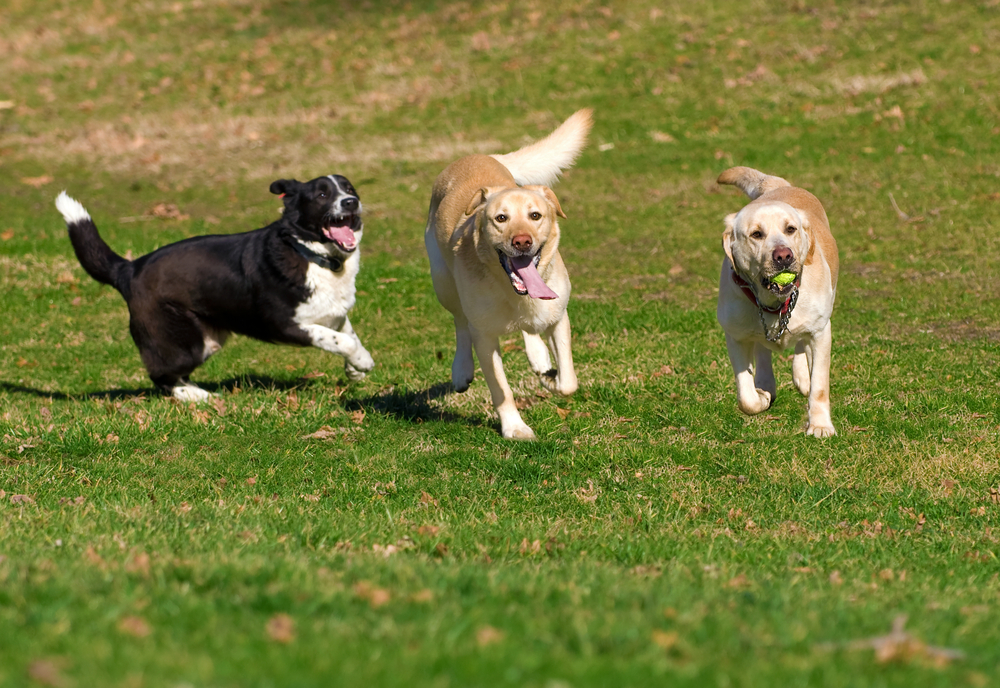
2. Provides an Outlet for Excess Energy
Under-exercised dogs can become destructive. Many dogs, especially breeds known for their high energy, may become bored and frustrated if they’re not provided enough opportunities for physical activity and mental stimulation. If you notice your dog is being naughtier than usual and chewing excessively, digging at the doors, or raiding your trash can, it may be time to take them somewhere to burn off excess energy.
3. Can Provide a Safe Space for Small Breeds
Some dog parks have a separate space created especially for small breeds. This is important if you have a small dog, as they will be socializing with pups similar in size. A lot of issues can arise from an overly exuberant large breed dog playing alongside a much smaller breed.
Not all dog parks have these separate cordoned-off areas for smaller breeds, however. We highly recommend researching the parks in your area to find out if they have this amenity if you own a smaller breed.
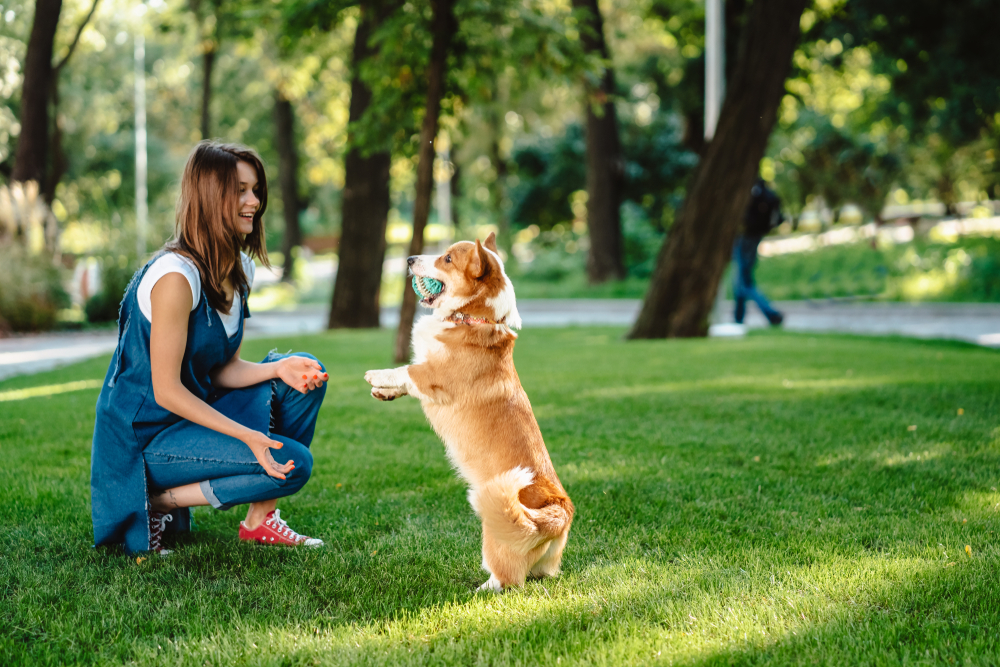
4. Provides Social Advantages for the Owner
Taking your dog to the park doesn’t only benefit them; the dog park can be a fantastic source of interaction for owners. It provides the opportunity to meet other dog-oriented people, which can result in strong social connections.
5. Provides a Dog-Centric Space
Dog parks provide a dog-centric space with fewer rollerbladers, bicyclists, skateboarders, or traffic to worry about. This typically makes dog parks a safer space to be off-leash without these potential hazards.


The 5 Cons of Taking Your Dog to the Dog Park
1. Potential for Injuries
Though relatively rare, there are stories about dogs getting killed or injured at dog parks. Injuries can occur even between two dogs playing amicably. Because of this, supervision of your dog is always necessary, and be sure that your dog can play comfortably and nicely with other dogs before you venture for off-leash time at the dog park.
2. Irresponsible Owners
Hopefully, you’re a responsible owner that knows their dog’s personality and has trained and socialized them to be well-behaved with other dogs. But just because you are responsible doesn’t mean that other owners at the dog park are. Dogs can show up that haven’t been socialized, vaccinated, or that have behavioral issues like aggression or fear-biting.
Again, supervision is key to keep your dog safe. Don’t let them off-leash until you have a good feel for the other dogs there and your dog is comfortable playing with them. Even then, keep an eye on them so that you can recognize subtle changes in their behavior that could indicate a problem is brewing.
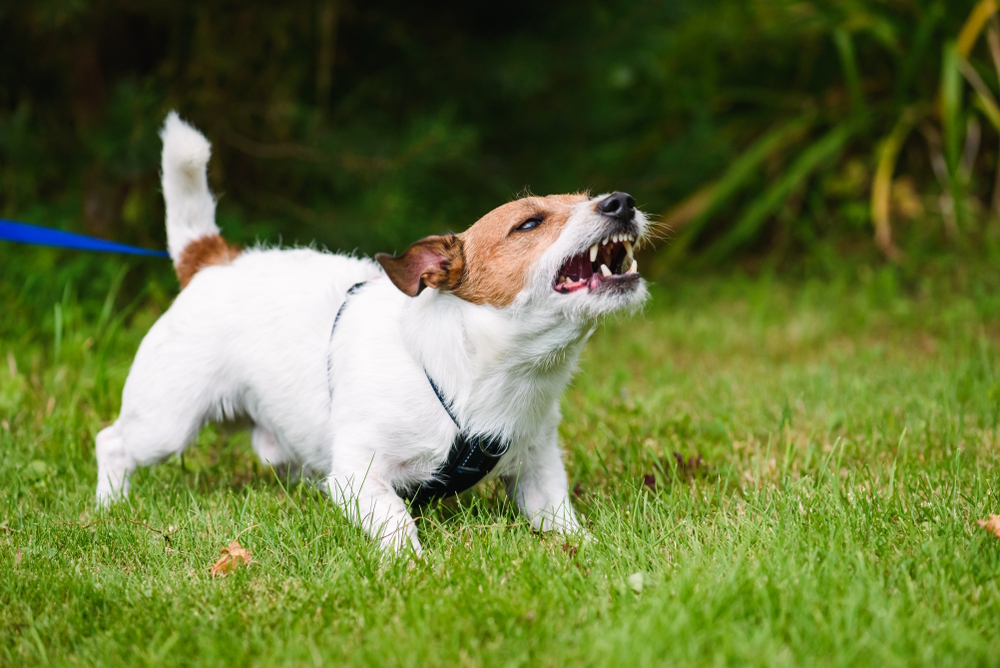
3. Potential for Disease Transmission
Diseases and parasites can be spread anywhere there are lots of dogs, including at your local dog park. Responsible owners should educate themselves about the highly contagious diseases that could be lurking at the park, including parvovirus, kennel cough, canine influenza, and canine distemper. These diseases are all spread through the air or feces, though there are vaccines available to help prevent the transmission. Puppies that have not yet been fully vaccinated mustn’t go to the dog park.
Both internal and external parasites can be spread at the dog park, too. Common intestinal parasites your pup can pick up at the dog park include giardia, whipworms, hookworms, and roundworms. Fleas and ticks can be picked up as well.
4. Incompatible Play Styles & Personalities
Just like humans, not all dogs will automatically enjoy being in the presence of every other dog they meet. Additionally, play styles can be radically different from dog to dog, and sometimes, dogs are just not compatible with one another. This can cause misunderstandings and even lead to fights.
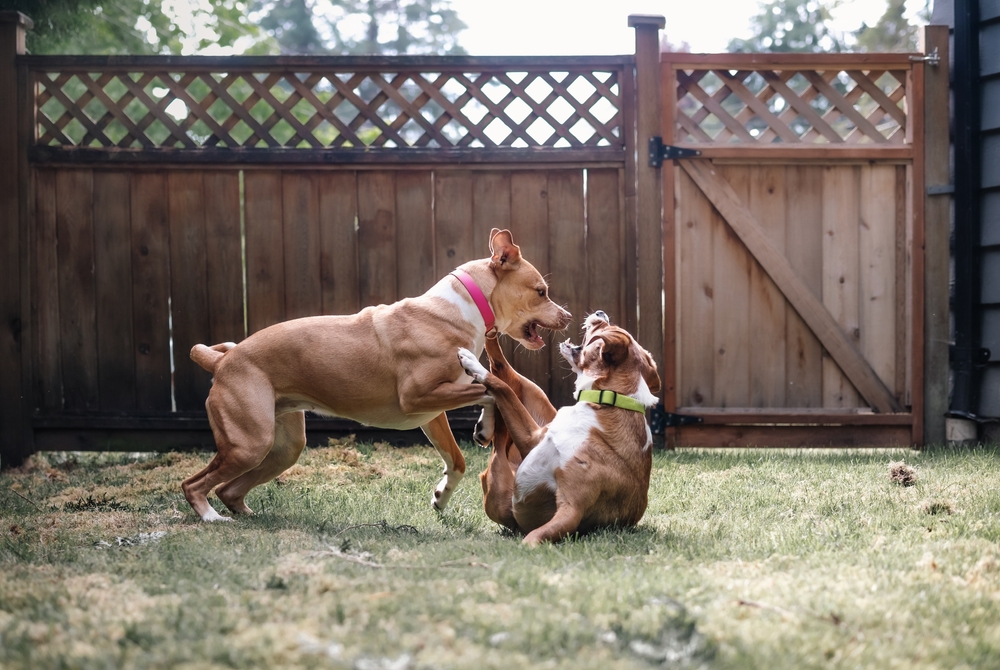
5. Potential for Traumatic Experiences
Taking all of the above “cons” into account, it’s easy to see how some dogs can experience lifelong trauma from even just one visit to the dog park. A puppy that’s attacked at the park may associate being outside with this traumatic experience, making them less likely to enjoy going for walks, even those that don’t wind up at the dog park.

What If the Dog Park Isn’t Right for My Dog?
Weighing the benefits and risks of the dog park is important when deciding whether you should take your dog to the park or not. If you decide that it’s best not to expose your pup to the potential dangers at the park, you don’t need to feel guilty about your decision. The dog park is not for everyone, and that’s perfectly fine. There are plenty of other ways you can socialize and exercise your dog. For example, you can make walking dates with your neighbor who has a dog that is familiar to you. If you don’t know anyone in your area, a well-supervised dog obedience class is another great way to provide your pup with the socialization they need.
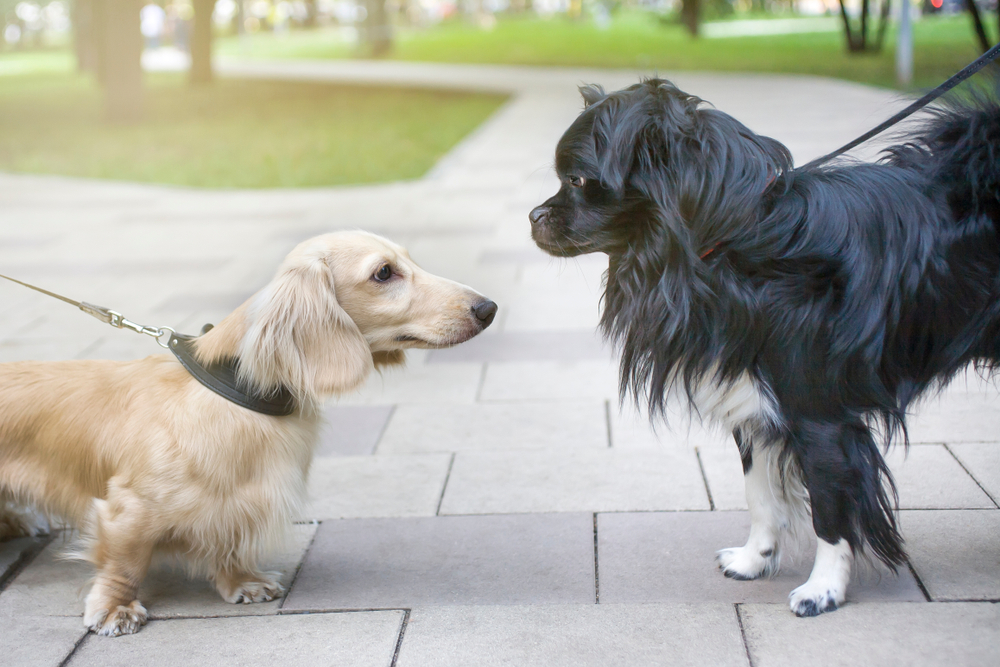

Final Thoughts
Ultimately, the decision to take your dog to the dog park is one you need to make on your own after you have had a chance to weigh the pros and cons. Doing so will help you determine if the benefits outweigh the risks for your dog and their personality. Don’t feel guilty if you decide that the park isn’t right for your pet, as there are still plenty of other ways you can exercise and socialize your dog.
Featured Image Credit: Joy Brown, Shutterstock
